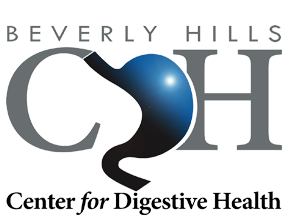Foods That Can Cause Acid Reflux Disease
BOOK APPOINTMENTWhat is Acid Reflux Disease?
At the entrance to your stomach there is a valve called the lower esophageal sphincter, or LES. Typically, the LES will close as soon as food passes through it. But when it opens too often or doesn’t close all the way, stomach acid can travel up into your esophagus, which results in acid reflux. This can lead to symptoms such as bloating, burping, hiccups, nausea, coughing, or — the most common symptom — a burning sensation in your chest called heartburn. If these symptoms repeat more than twice a week, then you have acid reflux disease.
What causes acid reflux?
There are many factors other than diet that can lead to acid reflux disease. One such factor is a common anatomical abnormality known as a hiatal hernia. This occurs when the LES and the upper portion of the stomach move above the muscle that separates your chest from your stomach (known as the diaphragm). Since the diaphragm typically helps keep acid in your stomach, it can no longer do its job correctly, and this can result in acid reflux disease. For others, acid reflux disease can be mostly about what you eat.
Foods to Avoid
- Chocolate: Unfortunately for those with a sweet tooth, this is the #1 dietary cause of acid reflux disease. Not only does chocolate contain caffeine and an assortment of other stimulants that can cause acid reflux, but it is also both high in fat and cocoa, two additional risk factors. Technically dark chocolate should be a bit better for you than milk chocolate, but it should be avoided entirely.
- Carbonated Drinks: The carbonation in sodas and other fizzy beverages expand in the stomach, and that increased pressure can lead to reflux. Those that are acidic or have caffeine are even worse.
- Fried Foods: While fried foods can be delicious, they’re also on a lot of these don’t eat lists for a reason. Regarding acid reflux, it’s the enormously high fat content that helps make these items the food most commonly associated with heartburn.
- Alcohol: While many alcoholic beverages are not very acidic, beer, liquor, and wine all contribute to reflux. It’s believed that the alcohol relaxes the valve where the esophagus joins the stomach, leading to reflux. If you can’t weed it out completely, try not to binge drink and avoid acidic mixers like soda or orange juice.
- Dairy products high in fat: If you’ve been keeping track, high-fat foods are a common risk factor in acid reflux, and cheese is no exemption. You should especially try to avoid the softer cheeses with higher fat contents.
- Fatty meats: Fat-laden meats are not only a risk factor due to their high fat but their tendency to stick in the stomach longer, thus giving them more time to contribute to your acid reflux. Next time, try a leaner cut.
- Coffee: Moderation is key. A cup of joe or espresso a day is fine, but those who drink consistently throughout the day are treading on dangerous ground. Try a smooth herbal tea, like a chamomile, or a lightly brewed batch of green tea.
- Eating habits: While the high-risk foods listed above often lead to acid reflux disease, the way that you eat is also a contributing factor. Some bad eating habits that can lead to discomfort include gorging on large meals, lying down after a meal, and snacking too close to bedtime.
If none of these household remedies work for you, schedule an appointment with the Beverly Hills Center for Digestive Health. We’ll be happy to help you combat your acid reflux disease and get you back to full strength.
Our Blogs
Accurate Diagnostics for Anorectal Strength and Function
Back to BlogsAre you having problems producing healthy bowel movements? The problem may be the muscles around your digestive tract either not coordinating properly or lacking strength. To get your GI problems addressed as soon as possible, visit the Beverly Hills...
Pelvic Floor Dysfunction?
Back to BlogsPelvic floor dysfunction is the inability to relax and coordinate your pelvic floor muscles to allow for smooth defecation. Fortunately, there are treatments available, including biofeedback, medications, and physical therapy. Reclaim strength and comfort...
Cutting-Edge, Compassionate Care Can Help You Find Hemorrhoids Relief
Back to BlogsHemorrhoids can be debilitating and painful, but treatment is available. If you’re suffering from hemorrhoids, make an appointment at the Beverly Hills Center for Digestive Health. We offer cutting-edge, compassionate care to help you find hemorrhoids...
Call to Schedule
Our office is available to answer your questions and evaluate your symptoms.

Phone
(310) 855-0222
Fax: (949) 404-6467
Hours
Mon - Fri: 9am – 5pm
Sat - Sun: Closed